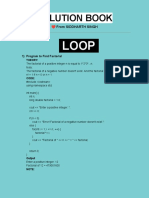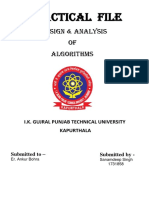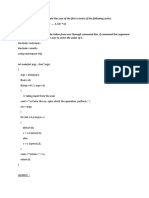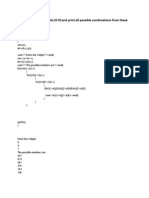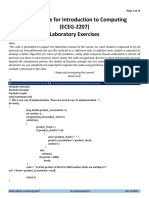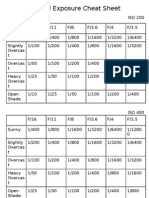0% found this document useful (0 votes)
19 views29 pagesPractical C
The document contains algorithms, flowcharts, and C++ code for various programming tasks including finding factorials, implementing sorting algorithms, reading/writing files, generating Fibonacci series, finding GCD and LCM, checking prime numbers, and reversing strings. Each section provides a clear structure with steps, flowcharts, and sample outputs. The programs demonstrate fundamental programming concepts and techniques.
Uploaded by
kajalyadav93075Copyright
© © All Rights Reserved
We take content rights seriously. If you suspect this is your content, claim it here.
Available Formats
Download as PDF, TXT or read online on Scribd
0% found this document useful (0 votes)
19 views29 pagesPractical C
The document contains algorithms, flowcharts, and C++ code for various programming tasks including finding factorials, implementing sorting algorithms, reading/writing files, generating Fibonacci series, finding GCD and LCM, checking prime numbers, and reversing strings. Each section provides a clear structure with steps, flowcharts, and sample outputs. The programs demonstrate fundamental programming concepts and techniques.
Uploaded by
kajalyadav93075Copyright
© © All Rights Reserved
We take content rights seriously. If you suspect this is your content, claim it here.
Available Formats
Download as PDF, TXT or read online on Scribd
/ 29


